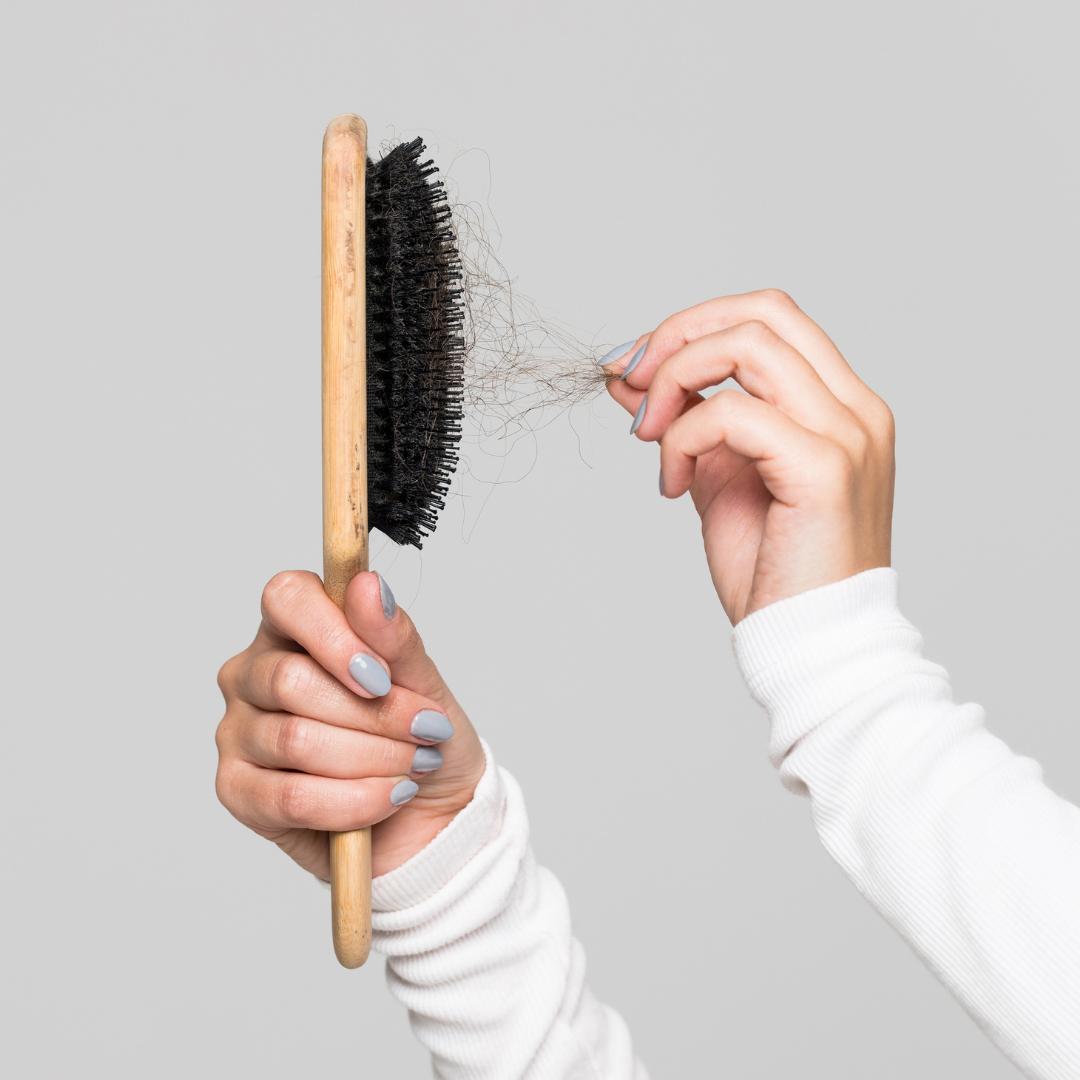
Hair loss is one of the most frustrating symptoms to deal with—and one of the most misunderstood. While it's often chalked up to aging or genetics, the truth is more complex. At Radiant Health & Wellness, we look at hair loss through a root-cause lens. What’s really driving it? And how can we support regrowth from the inside out?
Let’s dig into the functional medicine perspective on what’s really going on beneath the surface.
The Gut–Hair Connection
What does your digestive system have to do with your hair? A lot more than most people realize. The health of your gut determines how well your body absorbs nutrients like iron, biotin, zinc, and amino acids—all of which are essential for healthy hair follicles.
An imbalanced gut can lead to chronic inflammation, poor nutrient absorption, and even hormone disruption. Over time, this creates the perfect storm for hair thinning, shedding, or slowed regrowth. If your gut is struggling, your hair may be one of the first places it shows up.
Hormones, Stress, and the Hair Growth Cycle
Hair loss is also heavily influenced by hormone imbalances. Conditions like thyroid dysfunction, polycystic ovary syndrome (PCOS), or insulin resistance can all disrupt the natural hair growth cycle.
And let’s not forget stress. Chronic stress leads to elevated cortisol levels, which can literally shrink hair follicles and push them into a “resting” phase, where hair no longer grows. In some cases, it can even trigger autoimmune-related hair loss, such as alopecia areata.

The Role of Nutritional Deficiencies
Hair is made up of keratin, a protein built from amino acids. Without enough dietary protein—or if your body isn’t breaking down and absorbing it well—your hair may become brittle, thin, or start falling out.
Many people are also low in nutrients that support hair health, including iron, zinc, selenium, vitamin D, biotin, and B vitamins. While biotin gets a lot of attention, it's important to note that too much can actually interfere with lab testing and doesn’t help unless you're deficient.
A comprehensive evaluation of your nutrient status can often reveal what’s missing—and where to focus your healing efforts.
Clean Topicals & Natural Remedies
While internal healing is key, some topical strategies can support healthy hair from the outside. Rosemary oil, for example, has been shown in studies to improve hair growth just as well as minoxidil (the active ingredient in Rogaine), without the same side effects.
Other natural remedies like pumpkin seed oil, saw palmetto, caffeine, curcumin, and onion juice have also shown promise in promoting hair growth or reducing hair loss. But remember: even natural remedies aren’t one-size-fits-all. Some can impact hormones or interact with medications, so it’s important to work with a trained provider when trying herbal therapies.

Stress Reduction Is Part of the Prescription
You can’t talk about hair loss without talking about the nervous system. Practices like meditation, breathwork, massage, acupuncture, and even aromatherapy can help regulate your stress response. And in doing so, they support hair growth—indirectly but powerfully.
Lowering cortisol allows the body to shift back into a state of repair, including restarting healthy hair cycles. This is one of the reasons why stress management is a non-negotiable part of any holistic hair loss protocol.
So, What Can You Do?
If you’re experiencing hair loss, it’s time to stop blaming age or genetics and start asking deeper questions:
Healing your hair starts with healing your whole system. A Functional Medicine approach can help you uncover the why behind your hair loss—and guide you with a targeted, personalized strategy that addresses your body’s unique needs.
The Bottom Line
Hair loss is never just about the hair. It's a sign—an invitation to look deeper. Whether it's nutrient depletion, hormonal shifts, gut dysfunction, or chronic stress, the body is always trying to tell you something.
And the good news? When you address the root cause, healing becomes possible—not just for your hair, but for your energy, mood, hormones, digestion, and overall vitality.
Want support on your hair loss journey?
At Radiant Health & Wellness, we help you look beyond surface-level treatments and create a personalized roadmap to whole-body healing. Schedule a call today to learn more about our Functional Medicine approach.
References & Resources
National Institutes of Health (NIH) – “Micronutrients and Hair Loss: The Role of Vitamins and Minerals in Hair Health.”
https://www.ncbi.nlm.nih.gov/pmc/articles/PMC5315033/
International Journal of Molecular Sciences – “The Role of Gut Microbiota in Hair Loss: A Review.”
https://www.mdpi.com/1422-0067/24/5/4162
Skinmed Journal – “Rosemary Oil vs. Minoxidil 2% for Hair Regrowth: A Randomized Comparative Trial.”
https://pubmed.ncbi.nlm.nih.gov/25842469/
Journal of Alternative and Complementary Medicine – “Pumpkin Seed Oil and Hair Growth in Men.”
https://www.ncbi.nlm.nih.gov/pmc/articles/PMC4017725/
Journal of Drugs in Dermatology – “Cortisol-Induced Hair Loss: Understanding the Stress Connection.”
https://jddonline.com/articles/dermatology/S1545961621P0799X
Institute for Functional Medicine (IFM) – “Functional Medicine Approach to Alopecia and Hair Thinning.”
https://www.ifm.org
 Radiant Health And Wellness
Radiant Health And Wellness
Stay updated on our news and events! Sign up to receive our newsletter.